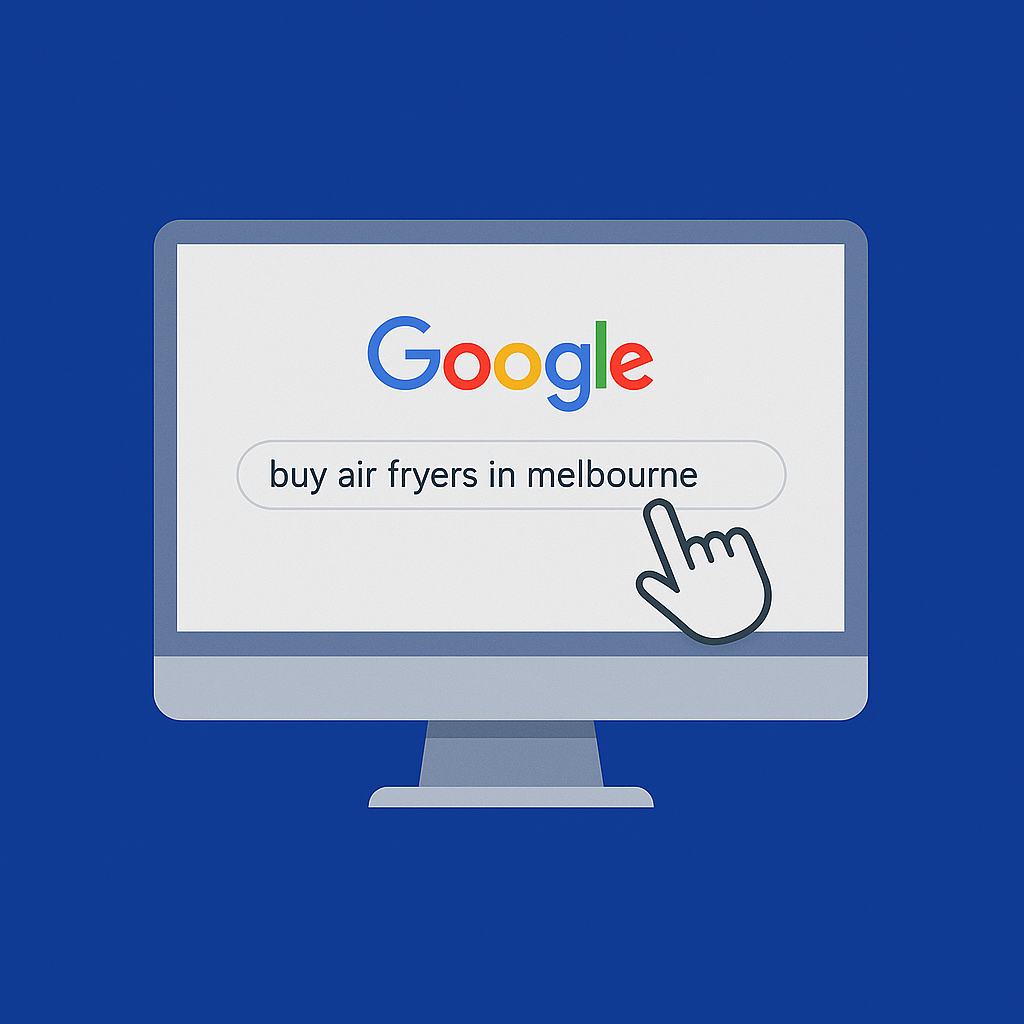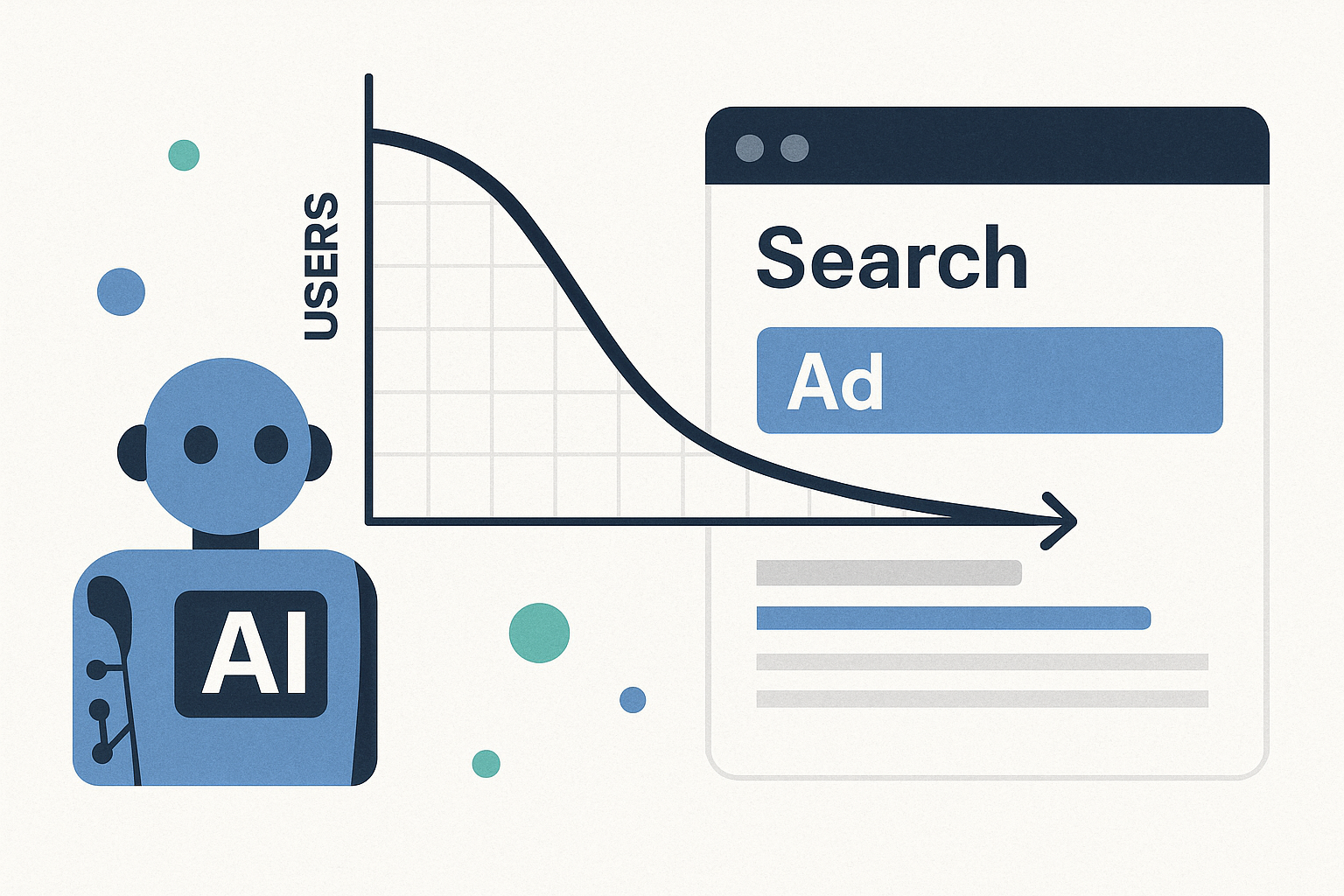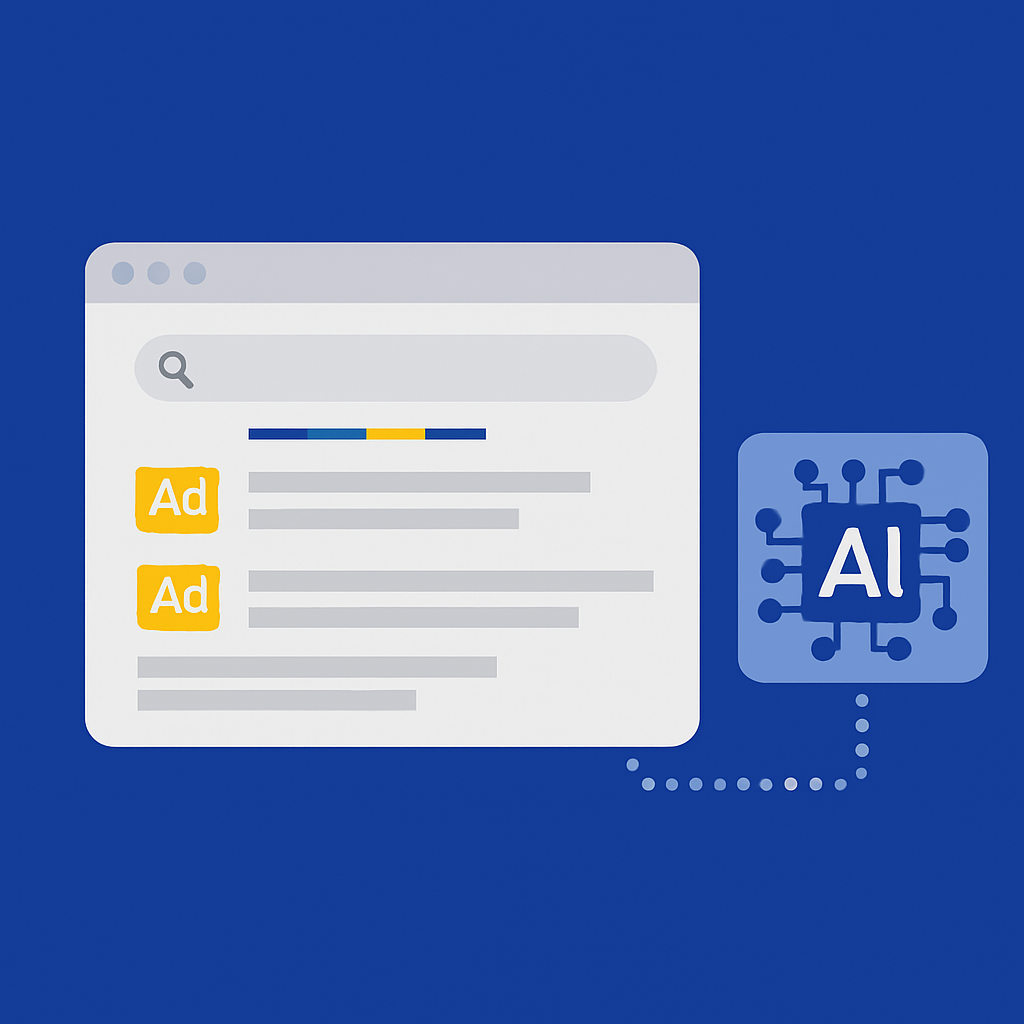Before examining the AI impact on paid search, we first need to look at why so many companies have the attitude of “paid search is all we need”. This is basically the TV and print advertising model applied to the Internet. In the early days of the web this was mainly in the form of banner ads. Companies would pay a revenue percentage to the publishing site for every click-through that resulted in a conversion. Back then it was a neat transplant.
Then Google AdWords changed the game. Brands could use a bidding system to have their websites featured in prominent positions on the search engine results pages (SERPs), as well as on related websites. This was a seductively simple solution to create online visibility and gain traffic. These little ad blocks became the de facto way for many companies to gain prominence and reach targeted audiences.
However, the idea that paid search is all you need has always been flawed. This attitude ignores all the other tactics and strategies required to rise to the top of the heap, most especially organic SEO, link-building and content marketing. A brand that solely relies on paid search has only one online marketing channel to reach its audience. And if another company outbids it on an essential search term, there is nothing else to fall back on. Meanwhile, competitors are using all the other tricks in the book to gain an advantage.
And now we also have the rapid rise of AI-driven search marketing trends. It’s critical to fully understand the AI impact on paid search and find ways of diversifying digital marketing beyond paid ads. So here’s the Bring perspective, based on our more than 25 years of experience in search optimisation.
Why AI Means Paid Search is No Longer Enough
A recent global survey by Capgemini has revealed that a significant proportion of consumers are now using AI chatbots for online shopping rather than traditional search engines. It’s estimated that around 58% of customers prefer using these platforms to find the products and services they want. This has more than doubled from the 2023 figure of 25%.
You want people to see your brand and think ‘that’s the one for me’ before they even use the engine. Because once they’re inside the LLM, if your name doesn’t come up, it might be game over.”
– Jack Baldwin, Nibble Edge
These chatbots use generative AI to return answers to questions. In simple terms, this is a type of AI that can create new content based on information gleaned from the Internet. It uses large language modelling (LLM), natural language processing (NLP) and machine learning algorithms to analyse user prompts and generate the most relevant information. ChatGPT is the most prominent example, with Google Gemini and Perplexity also commonly used.
AI Impact on Paid Search Traffic
This has caused a noticeable drop in paid search traffic. If users are bypassing the traditional search engines, there’s no way they will see the ads that companies have paid for. In other words, if you’re relying only on paid search your website will essentially be invisible to these users. When it comes to tools like ChatGPT vs paid search, this strong new user preference is increasingly giving AI the edge.
Bring’s Matt Hodgson makes no bones about this: “Paid search is going to feel this hard. That long-tail, broad-match traffic—it’s going to dry up. What we’re left with is branded or high-intent product queries. And if your brand isn’t even mentioned by an LLM, you’re out of the running.”
He’s not alone. Jack Baldwin from Nibble Edge puts it just as pointedly: “You want people to see your brand and think ‘that’s the one for me’ before they even use the engine. Because once they’re inside the LLM, if your name doesn’t come up, it might be game over.”
One of the things that most attracts users is that it offers “conversational search”. This is a more accurate reflection of the way people talk in real life, as opposed to having to think up specific queries when using search engines.
To show the difference, typing in something standard into Google like “buy air fryers in Melbourne” will create a hodgepodge of sponsored promotions, organic search results, and a ton of shopping sites to wade through. On an AI platform people can “talk” to the chatbot in a more conversational way, and provide prompts to precisely narrow the search to exactly what they’re looking for. The above search term could thus become: “Where can I buy an air fryer in Melbourne at an affordable price and tell me how long it will take to drive to the shop from [my address].”

Try typing that into Google Search and you’ll get a dog’s breakfast of results, none of which will really give you the exact information. (We’re ignoring the new Gemini AI overview at the moment for the sake of illustration.)
The AI Writing is on the Wall
Further numbers from the survey starkly portray this trend. A seismic finding is that 70% of consumers are using AI chatbots as their go-to resource to find recommendations for products and services. Another study of US shoppers found that in late 2024 around 39% of them have used these generative AI tools, with another 53% saying that they plan to use them at some point in the coming year. Combined, this indicates that a massive 92% of US online consumers have already, or soon will, ditch traditional search methods in favour of AI chatbot platforms.
The outlook is similar for paid search in Australia. There has been a 45% year-on-year increase in Aussies using AI chatbots for online shopping, with one in every three people actively using them. Around 56% say that they specifically use AI tools to find new brands or products. This according to the Adyen 2025 Retail Report (Australia).
The writing is clearly on the virtual wall. In fact, this should be an urgent, blaring klaxon to companies who only rely on paid search. They will have to come up with paid search alternatives in 2025 and start implementing new generative AI search strategies if they want to stay in the game.
The Risks of Ignoring Generative AI Search Strategies and Trends
As if your paid search ads going unseen by everyone who uses AI isn’t bad enough, competitors who aren’t solely relying on paid search are seeing traffic to their websites exploding. Why? Because AI chatbots are using them to gather information and displaying them as reference links.
And here’s the rub: the AI platforms typically only show two or three website links, compared to a whole page of results mixed in with your ad. It’s simple arithmetic. If your ad appears on a page with 4 other sponsored links plus 20 organic sources, all else being equal, the odds of your site getting the click are 24:1. But a competitor mentioned in an AI platform answer has exponentially better odds of 2:1. As Matt puts it, “LLMs aren’t giving people ten links anymore. They’re giving two or three references max. That’s a huge drop in visibility for anyone who’s not already showing up organically.”

Furthermore, by sticking to paid search only, you’re getting targeted traffic, but research has found a difference in intent. An Adobe survey discovered that people who visit websites from AI platforms spend more time on the sites and browse more pages. The bounce rate (people who click through and then immediately click back) is 23% lower than other channels like organic and paid search. They view 12% more pages and stay for 8% longer. And we can only expect these percentages to grow. In short, they have higher intent and more engagement than visitors coming from traditional search engines through paid search.
Resistance from Paid Search Marketers
Despite the figures painting a crystal-clear picture of the AI impact on paid search, paid search-only marketers still voice some common objections to shifting away from the advertising model. The first is an understandable preference for clear pricing and measurable ROI, down to every single click. Google provides an entire enterprise suite of paid search monitoring and analysis tools. In their eyes AI-driven search appears less tangible by comparison.
The other common misperception is that paid search is the best way to acquire targeted traffic and sales leads. In theory this is true, but the reality today is that the majority of people who use search engines scroll right past the sponsored links and click on images, videos or organic website results instead. The reason? Trust.
In today’s ad-saturated world, searchers are less likely to trust a link that has been paid for than one that Google (or AI) has recommended. We’re hard-wired to prefer something that we perceive as authentic over what we see as buying its way in. You see the same thing in Formula 1. Drivers who have bought their seats in teams are less respected than those who have earned them.
So yes, you will see more qualified traffic from paid search, but this isn’t really enough to compensate for the amount of potentially qualified visitors you’re losing. Of course it’s better to get 100 visitors and convert 50 of them than to get 500 and only convert 25. That’s standard online marketing lore. But a website could be getting far more pre-disposed visitors by expanding their online marketing palette, especially now that AI has poked its nose in.
All these objections ignore the inescapable fact: AI-driven search makes paid search invisible.
The Bring Bottom Line
Our own analysis of clients and other web properties clearly highlights the risks of relying on paid search alone. We’re seeing the AI impact on paid search in critical areas:
- Rising CPCs (cost-per-click) and declining ROI.
- Reduced overall traffic and visibility due to zero-click searches.
- Competitors adapting faster and capturing more market share.
This isn’t surprising at all, given the scenario we described above. And it’s not only e-commerce websites that are suffering.
Broader AI Impact on Paid Search: It’s Not Just Retail
Here at Bring we’re seeing that the AI impact on paid search is being felt across a wide spectrum of industries. As Matt observes: “Travel, health, education—no one is immune. AI platforms are now the first touchpoint for product discovery and research. If your brand isn’t there, your competitors will be.”
It has created a new landscape in healthcare, for instance. People are increasingly using AI platforms to research symptoms, medication and treatment options. There’s also a growing tendency to accept this information as the final word, without visiting any websites to research further. The fact that this might not be the wisest way to manage one’s health is moot. The obvious result is a drop in traffic to healthcare websites, which we’re starting to notice among our clients.
Our clients in the travel industry are also vulnerable. Why search and scroll through booking websites when you can simply ask ChatGPT to find you a flight on a particular day, tell you where you can get the lowest price, and recommend the best airlines? The websites that the AI chatbot identifies get the traffic and the bookings, while those that rely on paid search don’t even get a look-in.
We could find examples in many other sectors, but you get the point by now. It’s the same thing over and again, and no one is immune.
Strategic Recommendations: Paid Search Alternatives in 2025
So how do paid search marketers respond? How do you get those coveted mentions in AI-driven search results? Jack Balwin’s response should be a wake-up call for paid search marketers: “Right now, you’ve got to do everything you can—within your budget and resources—to rank in those platforms. Because when the paid ads do roll out in LLMs, the brands already ranking will be the first to benefit.”
Our experts have analysed dozens of use cases that allow us to recommend clear and actionable generative AI search strategies.
These not only combat the limitations of paid search-only marketing; they also reveal meaningful opportunities for our clients to use AI-driven search marketing trends to increase their authority with AI chatbots and gain a real competitive advantage.
- Organic SEO & Content Marketing: This is the tried-and-true method of creating online authority to help ensure that the search engines rank a website as highly as possible. It also insulates the site from disruptive search engine algorithm changes. No matter whether it’s a search engine crawler or an AI chatbot, smart organic SEO and regularly publishing fresh, valuable and authoritative content still works as well as ever. However, it now needs to be tailored for AI consumption. This means using well-structured, conversational content that matches potential AI queries, and providing neatly packaged question and answer sections for quick and easy absorption by AI chatbots.
- Structured Data & Schema Markup: This code-level method gives AI chatbots and search engines all the information they require in a pre-set structure designed to make it easily discoverable.
- Zero-Click Search Optimisation: Zero-click searches are when people get the information they want on the SERPs and don’t click through to the websites providing it. We recommend mitigating this by optimising site content to appear in other prominent places on the results page. This includes featured snippets, People Also Ask sections, knowledge panels and maps.
- Multi-Channel Integration: We’ve explained at length why relying solely on paid search is a serious impediment to online visibility and growth, and why diversifying digital marketing beyond paid ads is so crucial. We implement a balanced combination of organic search optimisation, social media exposure, YouTube SEO, Google Business Profiles for local SEO, and conversational AI optimisation for our clients.
- AI and Chatbot Partnerships: We also forge direct relationships with AI platforms for our clients using APIs (Application Programming Interfaces). In non-technical terms, these allow us to feed content directly to AI-platforms using the apps they provide for this purpose. This increases the likelihood of our clients’ data and content appearing in conversational AI-generated results.
- Implementing AI assistants: By adding their own AI bots to their websites, brands can improve conversion rates. One US grocery outlet implemented an AI-powered recipe assistant, resulting in a 4% conversion rate increase.
Practical Examples and Case Studies
- A beauty salon called Divine Lashes managed an astounding 900% growth in blog traffic within a year by creating packaged question and answer style posts for AI consumption.
- Some luxury retailers like Poshmark and MyTheresa have reduced online marketing costs and avoided AI-driven attrition by investing in conversational storytelling on platforms like TikTok, Snap and Pinterest.
- Closer to home, Business Australia prioritised long-form content structured and optimised for AI chatbots. It also created guides and webinars. Within a year its membership had grown by over 200%, as a result of an astonishing 6,000% increase in website traffic.
Frequently Asked Questions (FAQs)
Is paid search becoming less effective because of AI tools like ChatGPT?
Both the data and logic unequivocally show that AI tools are negatively affecting paid search ad performance. Not only are click-through rates down – when people use AI tools they simply don’t see paid search ads.
How can my brand appear in AI-generated search results?
You can use a number of generative AI search strategies to boost your website’s authority and appearance in AI search results. These include content marketing, structured data and schema markup, and formatting content in the form of easily digestible questions and answers.
What are the best alternatives to paid search in 2025?
There are plenty of alternatives. Optimising and structuring content to appear in AI search results is a powerful method.
How does zero-click search impact paid search traffic?
Zero-click search has the same effect on paid search traffic as all other traffic. It means that users don’t click on the ad because the search engine has given them the information right there.
Why should businesses diversify their digital marketing channels beyond paid search?
It’s a simple case of adapt or die. Without diversifying digital marketing beyond paid ads, businesses risk losing website traffic and face decreased conversion rates. The ultimate problem is complete invisibility to people using AI search platforms.
Can small businesses successfully compete in AI-driven search environments?
Absolutely. Everything we’ve discussed in this article applies to any size business, whether it’s a corporate enterprise or an SME.
The AI Impact on Paid Search: Key Takeaways
- Generative AI is significantly reshaping user search behaviours.
- Relying exclusively on paid search in 2025 is unsustainable.
- Brands must diversify their marketing strategies—focusing on organic, structured, and conversational search optimisation.
- Early adaptation to AI-driven trends provides significant competitive advantages.
